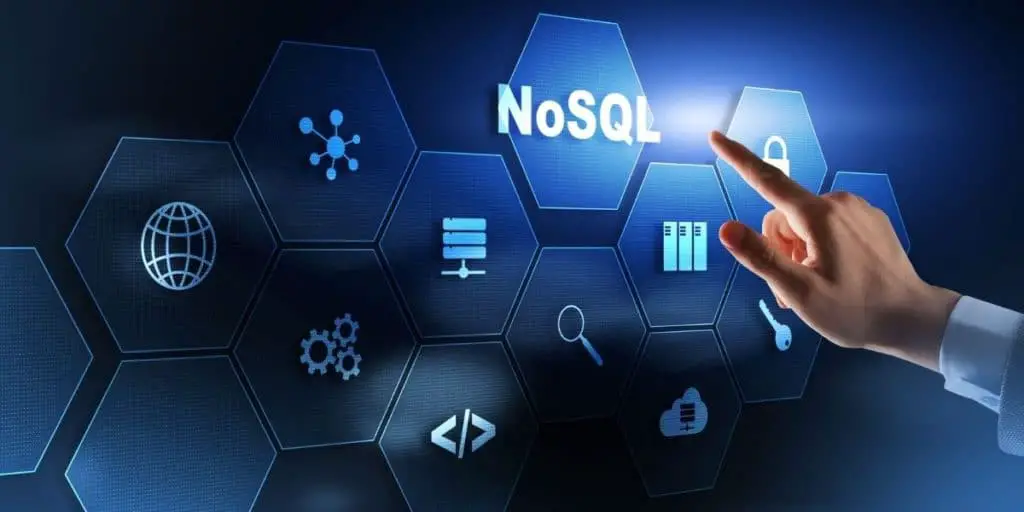SQL was first developed in 1974. Having been in use for so long, is it soon to become obsolete?
SQL is not becoming obsolete, and it is not showing indications that it is. Additionally, SQL knowledge is often ranked as the top tech skill by employers for data management, machine learning, and programming jobs.
If you find yourself in a position where you are pondering whether or not learning SQL is worthwhile? If you are uncertain of what skill sets you should prioritize to improve your professional prospects—read on and discover why SQL is not likely to go obsolete anytime soon.
Important Sidenote: We interviewed numerous data science professionals (data scientists, hiring managers, recruiters – you name it) and identified 6 proven steps to follow for becoming a data scientist. Read my article: ‘6 Proven Steps To Becoming a Data Scientist [Complete Guide] for in-depth findings and recommendations! – This is perhaps the most comprehensive article on the subject you will find on the internet!
Table of Contents
The Difference Between an Old and a Mature Programming Language
Understanding why SQL shouldn’t go obsolete anytime soon requires understanding the difference between an old and a mature programming language.

A mature language has been around for at least two decades and has established itself with a large following. Usually, this following occurs because a specific programming language met a particular need in the industry and continues to be developed and adopted by subsequent generations. Examples of such languages include PHP and Python. In both of these examples, they also have an element that keeps driving their popularity.
With PHP, its demand came from web development; with Python, it was the continuous need for a language that facilitates clear and logical code.
In the case of SQL, it was the increased use of relational databases that served as the initial driving factor. The pervasiveness of SQL was bolstered as the amount of data that could be gathered grew. In the present day, the demand for querying and manipulating data is higher than ever. The trend is sure to increase as data-thirsty fields such as machine learning and artificial intelligence training develop.
In contrast, an old computing language is one that, even though it may still be in use, its adoption curve shows a steady decline. Examples of these would be languages such as Pascal, Ruby, and VisualBasic.net.
5 Reasons SQL Is Not Becoming Obsolete
SQL Is the Recognized Standard for Database Languages
Another reason why SQL is likely to remain in high demand is that it is the recognized standard for database languages. For SQL to become a standard, it had to be adopted as such by recognized standardization organizations. With SQL, this came from the American National Standards Institute (ANSI) and the International Organization for Standardization (ISO).
By being a standard, different vendors and database developers rely on SQL as the base model for data querying and manipulation. While there may be variations in SQL dialects, the core syntax and command structure fall back on the established standard.
SQL can function as a universal querying language and a specific querying language in one. The former is accomplished because it is the recognized standard. The latter is arrived at in the way that it can be customized and honed for specific querying models by individual vendors.
This dichotomy of function makes SQL a forward-looking language. As such, its continued development and adoption are most likely.
SQL Is Intuitive and Easy to Learn
Form, function, and purpose help to establish the popularity and usage of any programming language. However, another crucial element to maintain a programming language’s upward slope of adoption is how easy it is to learn and how intuitive it is to apply.
SQL can be considered as being semantically mature. It means that it is well geared for handling any operation required to manipulate or manage data across multiple tables. The ease of application makes scripting queries with SQL much more straightforward and more intuitive.
SQL Is Not Stagnant
Even though SQL was first developed in 1974 and was adopted as a standard in the mid-to-late eighties, it is not a stagnant language.
The fact that SQL is open source has contributed to the language being continuously developed. Consequently, SQL has kept up with the pace and needs of new and emerging technologies related to data.
By combining the freedom of open source in combination with the steadfastness of bearing that comes with standardization, it has been possible for developers to customize the SQL experience. The development of extensions serves as enhancements that help keep SQL relevant.
SQL Is in Continuous Demand
For the reasons cited above, it should be no surprise that SQL is in continuous demand. In multiple surveys conducted by Stack Overflow, SQL ranks highly and favorably among programmers, data managers, analysts, and employers.
In a survey of professional developers, SQL ranks third with 56.9% in popularity and active adoption.
SQL knowledge ranked in the number one spot of skills being sought from prospective employees in a survey of employers.
A more practical metric for measuring the continuing demand in popularity of SQL is by looking at the diversity of data-related job fields that benefit from some level of knowledge of SQL.
Data Analysis
At its most basic level of application, SQL is associated most frequently with data analysis. It is understandable, as data analysts are the professionals tasked with finding patterns and trends across vast amounts of data. SQL is required to run the queries necessary for this type of analytical work.
Database Development and Modeling
Advanced SQL knowledge is relied upon to write procedures, indexes, and triggers when developing a database. Modeling a database calls on SQL to take the company’s data requirements and translate them into data types that can then be accommodated into tables and columns.
You can say that SQL is fundamental to the development of the relational database management system just as much as it is to its operation.
Database Administration
Database administration is a broad term that covers a wide range of duties related to safeguarding the integrity and security of a database. These responsibilities include the data contained within a database management system and the integrity of the hardware housing it.
To interact with a database, assign access privileges, monitor performance, etc., SQL knowledge is instrumental.
Data Science and Machine Learning
Data science is what permits taking raw data from an organization and crafting it into actionable intelligence. The sort of data querying involved in such a task is more involved than required for ordinary data-analysis. Therefore, SQL plays a crucial role in data science.
In machine learning, the algorithms used require large amounts of data-based input. Large amounts of data need to be queried and manipulated to meet the input demand. The process of amassing, sorting, collecting, and feeding this data to the algorithms starts with SQL.

SQL in NoSQL Environments
In recent years, the use of non-relational databases has increased. These database management systems, commonly referred to as NoSQL, store and organize the data in a method that does not rely on tables the way relational databases do.
As such, the querying methodology is different. While you would think that this would mean that SQL does not have a role in these types of databases, the reality is that its presence is felt.
Due to the near-universal adoption of SQL, many NoSQL databases use querying syntax that is heavily influenced by SQL. Some even offer extensions that allow quarrying instructions to be delivered with SQL.
The fact that you can use SQL on a non-relational database—the antithesis platform of what it was developed for—is a testament to the influence and staying power of SQL.
Author’s Recommendations: Top Data Science Resources To Consider
Before concluding this article, I wanted to share few top data science resources that I have personally vetted for you. I am confident that you can greatly benefit in your data science journey by considering one or more of these resources.
- DataCamp: If you are a beginner focused towards building the foundational skills in data science, there is no better platform than DataCamp. Under one membership umbrella, DataCamp gives you access to 335+ data science courses. There is absolutely no other platform that comes anywhere close to this. Hence, if building foundational data science skills is your goal: Click Here to Sign Up For DataCamp Today!
- IBM Data Science Professional Certificate: If you are looking for a data science credential that has strong industry recognition but does not involve too heavy of an effort: Click Here To Enroll Into The IBM Data Science Professional Certificate Program Today! (To learn more: Check out my full review of this certificate program here)
- MITx MicroMasters Program in Data Science: If you are at a more advanced stage in your data science journey and looking to take your skills to the next level, there is no Non-Degree program better than MIT MicroMasters. Click Here To Enroll Into The MIT MicroMasters Program Today! (To learn more: Check out my full review of the MIT MicroMasters program here)
- Roadmap To Becoming a Data Scientist: If you have decided to become a data science professional but not fully sure how to get started: read my article – 6 Proven Ways To Becoming a Data Scientist. In this article, I share my findings from interviewing 100+ data science professionals at top companies (including – Google, Meta, Amazon, etc.) and give you a full roadmap to becoming a data scientist.
Conclusion
SQL may be a query language that has been around for nearly five decades, but it is by no means obsolete. It is best to refer to it as mature and in continuous development.
Being accepted as a standard language for querying relational databases places it in a powerful position. The fact that it is open source and easily adaptable to new technologies’ demands also ensures its durability. In short, SQL possesses all the indications of being a database language that will be around for a while.
BEFORE YOU GO: Don’t forget to check out my latest article – 6 Proven Steps To Becoming a Data Scientist [Complete Guide]. We interviewed numerous data science professionals (data scientists, hiring managers, recruiters – you name it) and created this comprehensive guide to help you land that perfect data science job.
Affiliate Disclosure: We participate in several affiliate programs and may be compensated if you make a purchase using our referral link, at no additional cost to you. You can, however, trust the integrity of our recommendation. Affiliate programs exist even for products that we are not recommending. We only choose to recommend you the products that we actually believe in.
